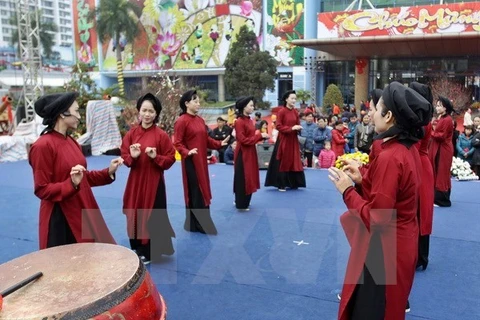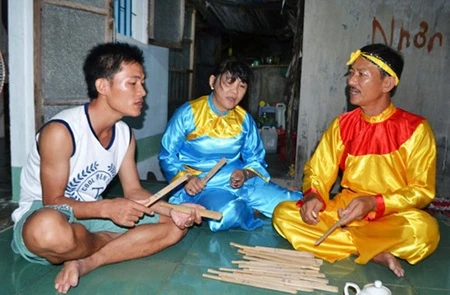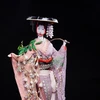Hanoi (VNA) –Xoan singing and Bai choi singing, two forms of Vietnamese folk music, are among 35 cultural heritages applying to be added to the UNESCO Representative List of the Intangible Cultural Heritage of Humanity.
The applications will be considered at the 12th session of the Intergovernmental Committee for Safeguarding of the Intangible Cultural Heritage which opened in the Republic of Korea on December 4.
Xoan singing comes from the northern province of Phu Tho, and is practiced in front of communal halls at spring festivals. It is said to have appeared about 4,000 years ago, during the time of legendary Hung Kings.
Singing events were organised not only to honour the founders of the nation and entertain villagers, but also to pray for good weather and harvests and depict daily life in rural areas.
UNESCO listed xoan singing as part of the world’s intangible cultural heritage in need of urgent protection in 2011. At that time, there were 13 xoan singing clubs with nearly 300 members. To date, the number rises to 33 clubs across the province.
In 2013, Phu Tho province prepared a 165 billion VND (7.85 million USD) project, entitled “Maintaining and Developing Intangible Cultural Heritage of Humanity- Xoan Singing in Phu Tho”, funded by the Government.
Two years later, Vietnam submitted a report to the UNESCO stating that xoan singing saw a revival thanks to the great efforts made by the Government and local people.
Meanwhile, Bai choi singing is a folk art form that originated in the south central region of Vietnam. It is popular in Thua Thien-Hue, Quang Nam, Binh Dinh, Phu Yen and Khanh Hoa.
Bai choi is often seen at local spring festivals and resembles a game, using playing cards and village huts. The bai choi songs are about festivals, daily life and work and are accompanied by musical instruments.
The Vietnam National Academy of Music joined hands with southern central localities to prepare an application dossier which was submitted to the UNESCO in March, 2016 to seek recognition.
The UNESCO Representative List of the Intangible Cultural Heritage of Humanity will be announced on December 7.-VNA
VNA

























